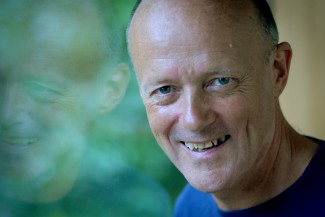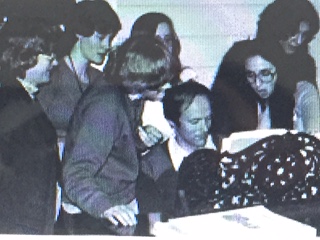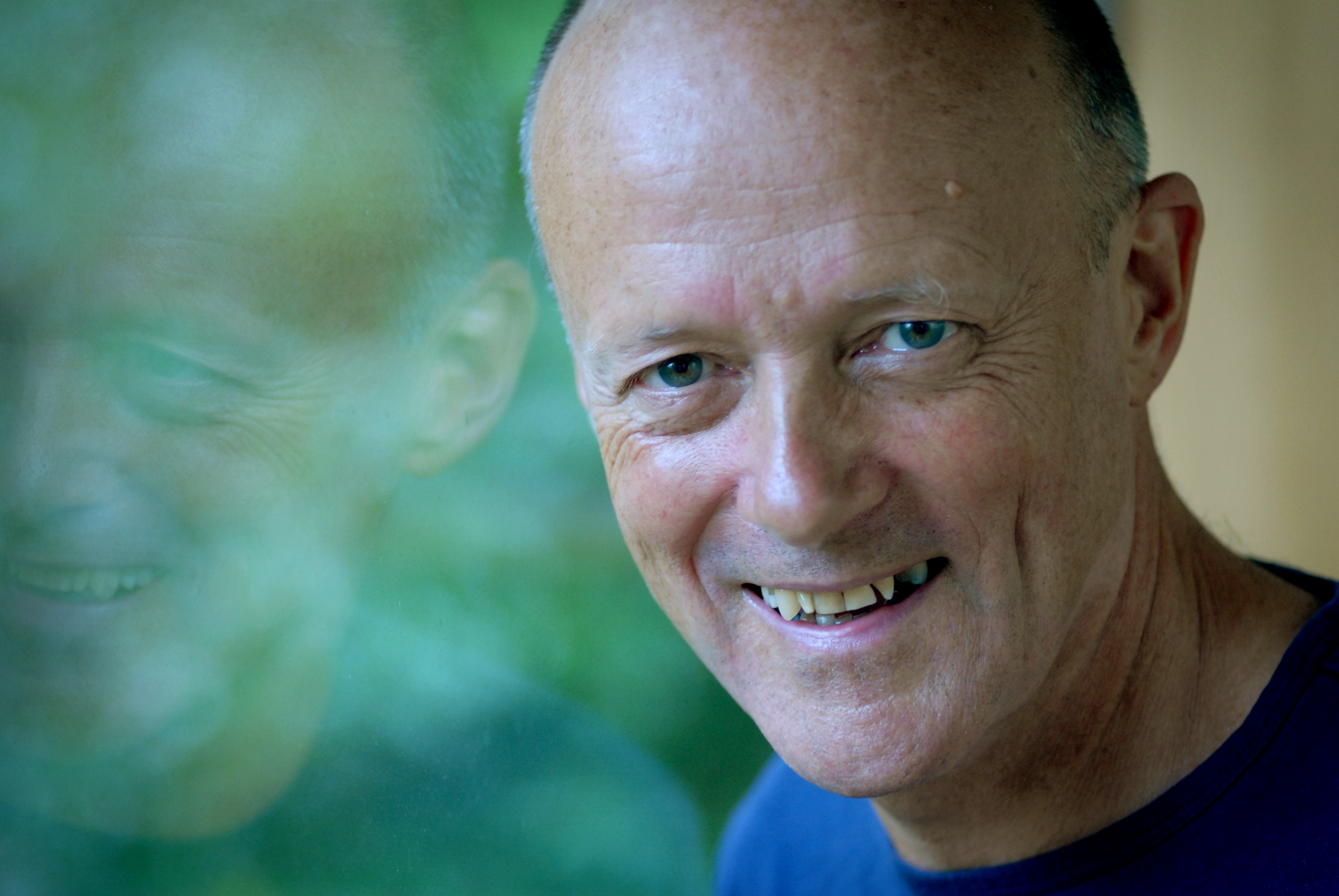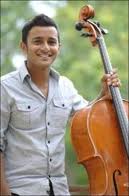How It All Began: Nicholas Routley On The Sydney Chamber Choir

A decade after Nicholas Routley, the founding director of the Sydney Chamber Choir has left the ensemble he created, there is still a powerful nexus between them. Talking about the choir’s upcoming 40th anniversary concert this weekend, which he will conduct, Nicholas Routley muses “I don’t know whether to say ‘we’ or ‘they’ since I haven’t been there for 10 years!”
For this commemorative concert, called Creativity + Loss, the Sydney Chamber Choir will be augmented by its alumni to perform the repertoire for which it is best known – the music of the Renaissance and before, and new Australian repertoire.
Talking to SoundsLikeSydney from his home on the North Coast of New South Wales, Dr Routley describes choral music in Sydney four decades ago as being in a ‘fairly parlous state’. It was July 1975 and he had just arrived in Sydney to take up a lecturing position in the Music Department at the University of Sydney. “I think people basically didn’t believe that a small group of singers could sing unaccompanied and stay in tune.” Shortly after his arrival he was approached by a handful of students who asked him if he would like to form a small specialist choir.
Reminiscing about those early days, Dr Routley observes “I told them for one thing, I’m not a singer and secondly I’m not a choral conductor. I was an orchestral conductor but not a choral conductor at that stage. But we decided to give it ago and I asked them whether they were really prepared to work because I wasn’t interested in doing something that didn’t make the best possible sound and they said ‘That’s exactly the point – we want to work.’ And so we put together this group of about twelve or thirteen singers for our first concert.”

In programming for that that debut performance, Dr Routley astutely focussed on repertoire that was not in circulation. “We started to explore the music of the 15th century. By the time of our second concert we had reached a certain standard and some of the composers in Sydney came and heard us. For this second concert in 1975 we did an all Australian programme. Ross Edwards was there as was Martin Wesley-Smith and Clare Maclean. All of them wrote music for us within the next couple of years because here at last was a choir that they could trust to perform their music accurately.”
This concert was in fact reviewed by the late critic Fred Blanks, who, says Dr Routley, made the acerbic comment “The performance of the Ross Edwards Carols from Quem Quaeritis left a great deal to be desired but it was a great pleasure to hear it all.” “He was onside” Dr Routley laughs,” but classically he didn’t let his standards down. We weren’t the bees knees at that stage but we were good enough for those composers to believe that this was a choir they could write for.”
“Today”, says Dr Routley, “Sydney can claim to be home to several choirs of really international standing. Certainly the Sydney Chamber Choir and Cantillation are of any standard that you would want and they are amongst the top.”
Along this journey of four decades, the bar was raised.
Says Dr Routley, “There was always a great enthusiasm within the choir and twice when I left to go to Hong Kong, the choir was taken by people who had a greater care for technical perfection on the whole, than I did. I came back to the choir to find that it had become more serious and more careful about what it did. When I came back in 1985 I did a concert which included Jesu , meine Freude , and Fred Blanks reviewed that as well. In that review he said that it was the best choir in Sydney at the time and that shows you how far we had travelled.”
The choir’s reputation soared and other organisations began to take notice. “The Australian Opera – as it was known then – asked the men of the Sydney Chamber Choir to sing in their production of Monteverdi’s L’incoronazione di Poppea. They thought we could do this better than the opera chorus at the time. The opera chorus has been absolutely fantastic but hiring us showed what people were thinking and by the 1980’s we’d really arrived.”
“From the 1980s onwards Australian composers have been writing for us. Paul (Stanhope) has been in charge of the choir since I left in 2006 and the emphasis on Australian composers has been increased because he is a composer of great distinction in the 21st century so that tradition has been more than fostered and perfected, you might say, under Paul.”
Inevitably, the conversation turned to the highlights of Nicholas Routley’s tenure with the Sydney Chamber Choir. “There are so many” he muses. “The very first thing that was amazing to me was the discovery and performance of the music of Josquin des Prez. I’d been brought up in England and went to St John’s College at Cambridge which had a wonderful choir but they never sang anything before the English Reformation – before Henry the VIII. So I’d never heard any 15th century music – I could have done – but it was performed only by esoteric people who played funny instruments. Music from this era was seriously marginalised.” Dr Routley then describes an Eureka moment when he found manuscripts of music by des Prez in the library at Sydney University. “They had been placed there by Donald Peart the foundation professor of music at the university who had enormously wide musical tastes. It was then that the music of Josquin really entered my life and in the first 6 years of the choir we learnt three whole Josquin masses, a great many motets and quite a few secular songs. Then we began to delve into Josquin’s predecessors like Okhegem and Dufay, both of whom are represented in our anniversary concert.”
“Another highlight” he continues, was to show Sydney audiences what could be done with very large scale works and period instruments. When I returned from Hong Kong in the mid 1980s we began to do the big choral works by Bach and Handel. We were the only choir at that stage which performed them with original period instruments which is almost expected today. But the instruments weren’t around then and it was wonderful to have a body of people some of whom came from interstate, to join us for these concerts.”
Dr Routley is looking forward to the anniversary concert with enormous anticipation. Inviting past members to sing in the choir he says, has been a “massive pleasure, because they are, without exception people from my era and they know exactly what I mean and what I want by the slightest gesture. The result is that with a choir of 25 and an equal number of alumni, we’ve got nearly 50 singers who are of the highest quality and you don’t often get that in performances – you usually get choirs of 80 or 90 who are good – but they’re not at this level of absolute purity of sound and perfection of ensemble. People have worked at this sound for decades and it’s a fantastic pleasure for me. Our soprano soloist Lindy Montgomery who has sung with the choir for some years is an absolutely wonderful oratorio soloists possibly the best around; Alexander Knight is very young, with a beautiful and very expressive baritone voice which immediately gets people out of their seats. “
Nicholas Routley can be justifiably proud of his brainchild. He speaks of it rather like a parent whose child has not just reached adulthood, but who has gone well beyond. The enduring success of the Sydney Chamber Choir through changes of government, the vagaries of funding decisions and a global financial crisis demonstrates stability, depth and maturity in the many facets of its operations. Sydney’s musical life is much the richer for the presence of this ensemble in the concert calendar.
Shamistha de Soysa for SoundsLikeSydney©





